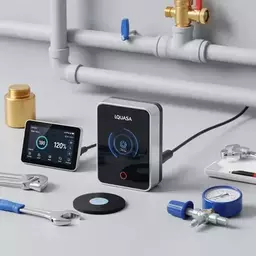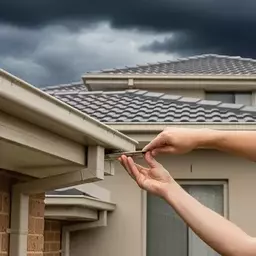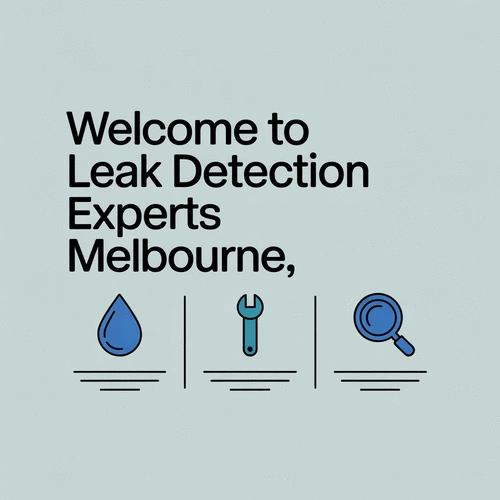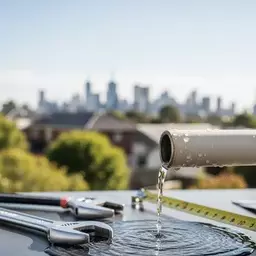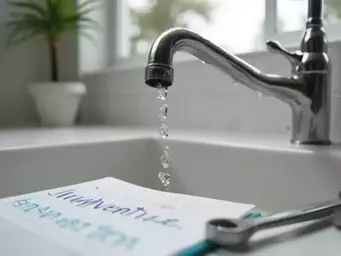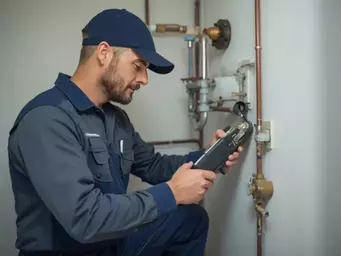Being prepared for the unpredictable weather in Melbourne can make all the difference between a safe home and costly damage. Understanding essential steps for leak prevention is crucial for every homeowner. Let’s dive into the key insights that will help you protect your property effectively!
What You Will Learn
- Regularly maintain gutters and downpipes to ensure effective water drainage and prevent leaks.
- Conduct thorough roof inspections to identify and address potential leaks before they escalate.
- Trim tree branches to minimize risks of wind-related damage and protect your home during storms.
- Secure outdoor items to prevent them from becoming projectiles in high winds, protecting both your property and others.
- Check and maintain your home's foundation to ensure proper drainage and avoid structural issues.
- Utilize technology, such as water sensors and smart home systems, to detect leaks proactively.
- Create a comprehensive emergency preparedness plan tailored to your home and local climate conditions.
- Stay informed about local weather alerts and guidelines to make educated decisions during storm season.
Melbourne Home Leak Prevention: Key Areas & Actions
Proactive measures are essential for Melbourne homeowners to mitigate leak risks and protect against storm damage. This visual outlines the critical areas to focus on and the actions required for each. For more detailed information on preventing leaks, explore our leak prevention tips for homeowners.
Gutters & Downpipes: Effective Drainage
- ✓ Clear debris (leaves, twigs).
- ✓ Check for blockages.
- ✓ Ensure free water flow.
Roof Inspection: First Line of Defense
- ✓ Look for cracked/missing tiles.
- ✓ Inspect flashing/seals.
- ✓ Annual professional checks.
Tree Maintenance: Minimize Storm Damage
- ✓ Prune overhanging branches.
- ✓ Remove dead branches.
- ✓ Consider tree distance to home.
Foundation Protection: Structural Integrity
- ✓ Check for cracks.
- ✓ Ensure proper drainage away.
- ✓ Sump pump in flood-prone areas.
Interior Inspections: Hidden Leak Sources
- ✓ Look for damp spots/stains.
- ✓ Check pipes under sinks.
- ✓ Inspect water heater for corrosion.
Plumbing Checks: Early Issue Detection
- ✓ Annual professional inspections.
- ✓ Look for corrosion on pipes.
- ✓ Check toilet seals and fixtures.
Essential Steps for a Comprehensive Leak Prevention Checklist in Melbourne
Preparing for storms is not just a precaution—it's essential for homeowners in Melbourne! With our unique weather patterns, including sudden downpours and strong winds, understanding how to protect your property can save you from significant water damage. Many homes in our area face risks from heavy rainfall especially, making it crucial to have a solid leak prevention checklist in place.
By taking proactive measures, you can mitigate potential leaks and ensure your home remains safe and sound. Let's explore the key components that will help you prepare your Melbourne home for storm season!
Understanding the Importance of Storm Preparation for Your Melbourne Home
Our local weather can be unpredictable, which means being prepared for storms is not just smart—it's necessary. A well-prepared home can withstand the intense conditions often brought on by Melbourne storms, minimizing the risk of leaks and water damage. So, what should you focus on?
- Monitor local weather forecasts regularly.
- Inspect your home’s exterior for any vulnerabilities.
- Ensure you have a reliable emergency kit.
These simple steps can make a huge difference when the storms hit. Remember, the goal is to keep your property secure and avoid the stress that comes with unexpected leaks!
Key Components of a Leak Prevention Checklist
Maintaining Your Gutters and Downpipes for Effective Water Drainage
One of the most important things you can do is maintain your gutters and downpipes. Regular cleaning helps prevent overflow, which can lead to leaks and structural damage. Make it a habit to check your gutters every few months, especially after significant weather events!
- Clear debris like leaves and twigs.
- Check for blockages in downpipes.
- Ensure water flows freely away from your foundation.
By keeping gutters clean, you're ensuring that water is diverted effectively, protecting your home from leaks.
How to Conduct a Thorough Roof Inspection
Your roof is your first line of defense against the elements. Performing a thorough inspection can help you catch potential leaks before they become a problem. Start by checking for cracked or missing tiles, damaged flashing, and wear on seals around vents and chimneys.
- Look for signs of water stains on the ceiling.
- Inspect joints and seams for wear and tear.
- Consider having a professional roof inspection annually.
Don't forget that addressing roof issues early can save you time, money, and a lot of hassle down the road!
The Role of Tree Maintenance in Preventing Storm Damage
Have you ever considered how tree branches can affect your home during a storm? Trimming back overhanging branches is a crucial step in preventing wind-related damage. During storms, loose branches can break off and cause significant harm to your roof and gutters. For more information on protecting your property, refer to our guide on waterproofing your Melbourne property.
- Regularly prune trees near your home.
- Remove any dead or unstable branches.
- Consider the distance of trees to your house when planting.
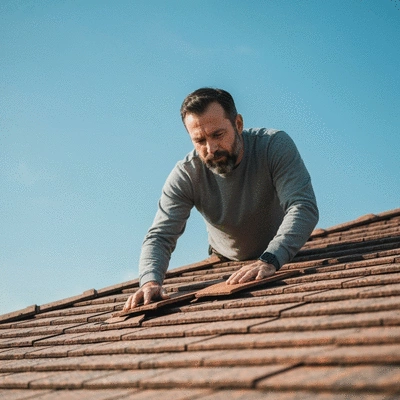
By keeping your trees well-maintained, you can minimize storm risks and protect your home from potential leaks.
Securing Outdoor Items to Minimize Storm Risks
Before storms hit, take a moment to secure any loose items around your yard. Outdoor furniture, decorations, and tools can become dangerous projectiles during high winds.
- Bring in or secure all patio furniture.
- Store tools and equipment indoors.
- Use weights or ties for larger items.
This simple act of preparation can significantly reduce risks and keep your property safe from damage!
Understanding the Importance of Foundation Protection in Leak Prevention
Your home's foundation is critical in preventing leaks and structural damage. Ensuring that it remains intact means addressing any drainage issues and ensuring water flows away from the house.
- Check for cracks in the foundation.
- Ensure your landscaping slopes away from the house.
- Consider installing a sump pump if you live in a flood-prone area.
By taking these steps, you’re not just protecting your home; you're also enhancing its long-term integrity!
Advanced Leak Detection and Prevention Techniques
Inspecting Interior Areas for Potential Leak Sources
Don’t forget to check inside your home! Interior areas such as attics and basements are prime spots for leaks. Ensure you inspect these spaces regularly for signs of moisture or water stains.
- Look for damp spots on walls and ceilings.
- Check under sinks and appliances for leaks.
- Inspect the water heater for signs of corrosion.
By keeping an eye on these areas, you can catch leaks early and prevent extensive damage!
Utilizing Technology for Leak Prevention
In today’s world, technology offers fantastic solutions for leak prevention. Devices like water sensors and smart home systems can alert you to potential leaks before they become a major issue.
- Install water sensors near high-risk areas like sinks and basements.
- Explore smart home systems that monitor water usage.
- Set up alerts to notify you of unusual water leaks.
Investing in these technologies can provide peace of mind, especially during storm season!
Implementing Effective Plumbing Checks to Detect Issues Early
Regular plumbing inspections play a crucial role in leak prevention. Make it a point to have your plumbing checked at least once a year to identify any potential issues before they escalate. For more insights on this, read our article on regular plumbing checks to prevent leaks.
- Look for signs of corrosion on pipes.
- Inspect toilet seals and fixtures for leaks.
- Check for slow drains that might indicate blockages.
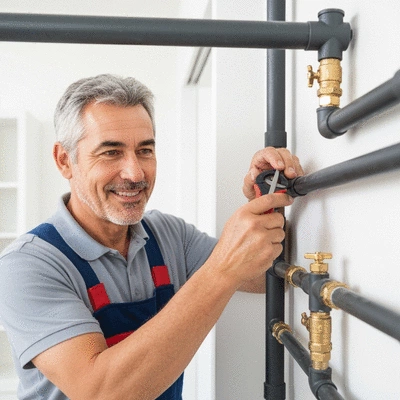
By staying proactive with plumbing checks, you can save yourself from costly repairs in the future!
Creating an Emergency Preparedness Plan for Melbourne Homes
Essential Items for Your Emergency Kit
Every home should have an emergency preparedness kit ready to go! Especially in Melbourne, where storms can be unpredictable, including the right items can make all the difference.
- First aid supplies
- Flashlights and batteries
- Non-perishable food and water
- Important documents securely stored
This kit can help you stay safe and organized in the event of a storm!
Staying Informed: Understanding Local Weather Alerts and Guidelines
Being informed is your best defense! Familiarize yourself with local weather resources that provide timely alerts and guidelines. Knowing what to expect can help you make informed decisions during storm season.
- Sign up for local weather alerts.
- Follow reliable weather services online.
- Keep a weather radio handy for updates.
Staying informed gives you the advantage to prepare your home and family adequately!
Developing a Storm Preparedness Plan Tailored to Melbourne
Every home is unique, and so should be your storm preparedness plan. Take the time to develop a personalized strategy that includes local hazards and emergency protocols.
- Identify evacuation routes and emergency contacts.
- Plan where to go if you need to leave your home.
- Discuss the plan with your family and practice it.
This proactive approach ensures everyone knows what to do when storms strike!
Frequently Asked Questions About Melbourne Home Leak Prevention
Here are some common questions homeowners have about preventing leaks in Melbourne:
Q1: Why is leak prevention particularly important in Melbourne?
A1: Melbourne's unpredictable weather, including sudden downpours and strong winds, makes homes vulnerable to leaks and water damage. Proactive prevention helps protect against these unique local challenges.
Q2: What are the most crucial areas to check for leak prevention?
A2: Key areas include gutters and downpipes, the roof (for cracked tiles or flashing issues), and the home's foundation. Interior areas like attics, basements, and plumbing also require regular inspection.
Q3: How often should I maintain my gutters and downpipes?
A3: It's recommended to check your gutters every few months, especially after significant weather events, to clear debris and ensure free water flow.
Q4: Can technology help with leak detection?
A4: Yes, modern technology such as water sensors and smart home systems can provide proactive alerts about potential leaks, offering peace of mind, especially during storm season.
Q5: What role does tree maintenance play in preventing storm damage?
A5: Trimming overhanging and dead branches near your home is crucial. This minimizes the risk of branches breaking off during strong winds and causing damage to your roof and gutters, which can lead to leaks.
Interactive Poll: Your Thoughts on Leak Prevention
As we discuss the importance of leak prevention, we'd love to hear from you! What measures have you taken to protect your home from leaks during storm season?
Recap and Call to Action for Melbourne Homeowners
Summarizing Key Takeaways for Leak Prevention
As we wrap up our discussion on leak prevention, it’s crucial to remember the key steps we’ve covered. Creating a comprehensive leak prevention checklist is vital to protecting your home, especially with the unpredictable storms we often face in Melbourne. Regularly maintaining gutters, conducting thorough roof inspections, and securing your outdoor items can significantly reduce the risk of water damage.
Don't forget the importance of checking your home's foundation and keeping trees properly trimmed. Each of these aspects plays a role in keeping your property safe from leaks. By focusing on these preventive measures, you can ensure your home remains a safe haven during severe weather.
- Maintain gutters and downpipes for effective drainage.
- Conduct regular roof inspections to detect potential leaks.
- Trim tree branches to minimize storm damage risks.
- Secure outdoor items that could cause damage during storms.
- Protect your foundation to prevent leaks and structural issues.
Encouraging Proactive Measures and Professional Assistance
Now is the time to act! I encourage you to take immediate steps by conducting your own inspections or reaching out to professionals like us at Leak Detection Experts Melbourne. Our team is dedicated to helping you secure your home against storm damage. We utilize advanced diagnostic technologies to identify any potential leaks before they become a costly problem.
Whether you need a simple inspection or a thorough leak detection service, taking proactive measures can save you money and stress in the long run. Remember, it’s always better to address issues before they escalate!
Stay Prepared: Ongoing Maintenance for Future Storms
Preparation doesn’t stop once you’ve completed your initial checks. I highly recommend scheduling regular maintenance checks to ensure your home stays resilient against future storms. Set a reminder for seasonal inspections to keep your home’s exterior and plumbing systems in top shape. For more assistance, consider our leak maintenance tips for Melbourne homeowners.
Consider creating a maintenance calendar that includes tasks like gutter cleaning, roof inspections, and plumbing checks. Consistent upkeep is your best defense against leaks and water damage!
Connecting with Local Contractors for Expert Assistance
Lastly, never underestimate the value of local expertise. Engaging with local contractors who understand the unique challenges posed by Melbourne’s weather can make all the difference. They can provide tailored solutions that ensure your home is storm-ready.
At Leak Detection Experts Melbourne, we offer comprehensive inspection and repair services to give you peace of mind. Don’t wait until a storm hits—reach out to us today to schedule a consultation and ensure your home is fully prepared for whatever Mother Nature might throw your way!
Recap of Key Points
Here is a quick recap of the important points discussed in the article:
- Maintain gutters and downpipes for effective drainage to prevent overflow and leaks.
- Conduct regular roof inspections to detect potential leaks early.
- Trim tree branches to minimize storm damage risks that could impact your home.
- Secure outdoor items to prevent them from becoming projectiles during storms.
- Protect your foundation by addressing drainage issues and ensuring proper landscaping.
- Inspect interior areas like attics and basements for signs of leaks.
- Utilize technology, such as water sensors, for early leak detection.
- Implement effective plumbing checks to identify issues before they escalate.
- Prepare an emergency kit and stay informed about local weather alerts.
- Develop a personalized storm preparedness plan tailored to your home’s unique needs.



